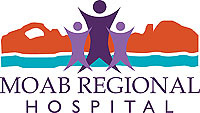|
|
HEALTHY HAPPENINGS - July 2024
|
Psycho Woman
by Ray Andrew, MD
|
Jan describes herself as “psycho woman”. She suddenly became severely depressed, uncharacteristically emotional, agitated, angry, anxious, couldn’t sleep at night. Started finding herself irritated by lots of little things her fiancé said and did that never bothered her before. Her roommates and family members wondered what had come over her. She alternated between feeling her fiancé was a jerk and feeling he deserved better than what she could offer him. Was it time to call off the wedding?
What happened? Where did the bubbly, kind, happy Jan go? It turns out that, in anticipation of her upcoming wedding, she saw her doctor and was prescribed birth control pills. What followed wasn’t exactly how she dreamed her engagement and wedding planning would go.
 Sadly, Jan is not alone: I have heard Jan’s story over and over from new patients over the decades. In a study published in 2023, 44% of women who had ever taken hormonal contraceptives (pills, patches, or the ring) experienced undesirable psychological side effects. Nearly half of those either stopped contraception altogether or switched to a different method as a result of those side effects. Women who had ever experienced psychiatric illness previously fared even worse, with twice as much risk of suffering psychiatric side effects as those who had had no prior illness. Sadly, Jan is not alone: I have heard Jan’s story over and over from new patients over the decades. In a study published in 2023, 44% of women who had ever taken hormonal contraceptives (pills, patches, or the ring) experienced undesirable psychological side effects. Nearly half of those either stopped contraception altogether or switched to a different method as a result of those side effects. Women who had ever experienced psychiatric illness previously fared even worse, with twice as much risk of suffering psychiatric side effects as those who had had no prior illness.
In the practice of medicine, there is a natural but regrettable culture of touting the benefits of chemical therapies while downplaying both the side effects and the risks. Caring about our patients, healthcare practitioners—me included—want them to experience the intended benefits of a therapy while hoping they are not among the unlucky ones who suffer the side effects. When patients do experience side effects, doctors and other practitioners hope that the perceived benefits of the drug exceed the severity of the undesirable effects.
In the case of hormonal contraception and the emergence of poor mental health, doctors prescribe antidepressants, either unaware that the mood disturbance is a consequence of the drug, or in the all-too-common scenario of using one drug to reduce or mask the side effects of another.
Why do mental illness and hormonal contraceptives—including “the pill”—so often go together? No, this is not a random coincidence. There are three reasons why many women do not respond well to these drugs.
1. Aside from the critical roles the hormones testosterone, progesterone, and estrogen play in preventing breast cancer, heart disease, stroke, blood clots, Alzheimer’s, osteoporosis, diabetes, arthritis, etc., each one of them in proper amounts contributes to calm and happiness. When a woman is pregnant, the placenta takes over production of these hormones. As a result, the ovaries don’t need to make them temporarily. Because the pill tricks the brain into thinking a woman is pregnant, the brain stops sending the signal to the ovaries to make these hormones. Now that she has these deficiencies, she is at much higher risk of anxiety and depression. These deficiencies often persist for some time even after the birth control has been discontinued. Unaware of the effects of the pill on hormones, women are often stunned when we run tests and demonstrate their nonexistent testosterone, estradiol, and progesterone at the time in their lives when these hormones should be at their peak production.
2. Hormonal contraceptives reduce your body’s supply of vitamin B6, folate, vitamin B12, zinc, vitamin C, selenium, and who knows how many other critical vitamins and minerals. Each of these nutrients plays an important role in energy production. Each is also necessary for your body’s production of both hormones and neurotransmitters. Considering that—according to US government statistics—our food supply is already compromised in a number of vitamins and minerals, you can’t afford to deplete them even further with a drug. Your body and brain don’t function as well with less-than-optimal hormone and neurotransmitter levels.
3. Some experts believe the most important reason “the pill” triggers mental illness is that it unmasks hidden disturbances in nutrient metabolism. Women often develop excesses or deficiencies of certain vitamins or minerals when they start taking “the pill” because it pushes their already fragile balance over the edge. When this happens, it’s tempting to simply stop the birth control pills and switch to something better. But this is not enough. It’s critical to find out what the biochemical abnormalities are and fix them. Chances are good that the abnormalities are affecting other processes in the body, aside from your mental health. Additionally, mental health problems triggered by birth control pills can also be triggered by pregnancy, delivery, or menopause if the biochemical abnormalities have not been treated.
There are, of course, safer and more effective ways of preventing pregnancy. But this isn’t the only reason women take hormonal contraceptives. In medical school, we were taught that these magic drugs were also the solution to acne, heavy periods, painful periods, irregular periods, no periods, endometriosis, PMS, and any other female problem.
All we had to do was prescribe the pill and everything would be alright. “The pill” regulates a woman’s cycle, we were taught. It is true that these drugs control the cycle of bleeding from the uterus. And they replace the often erratic and dysregulated ovarian hormone production with consistent levels of hormone-like chemicals. But they rarely fix any of the problems for which they are taken.
Because the pill only suppresses the symptoms—instead of solving the underlying problem—it makes more sense to find and repair the imbalances or dysfunctions that are causing the troublesome symptoms.
Fortunately, whether a woman is taking birth control to prevent pregnancy or to alleviate the symptoms of any other female problem, there are safer and more effective means of addressing these problems.
 Part of the reason most patients are unaware of alternatives is that, in medical school, we are trained in the use of drugs, not natural agents. Part of the reason most patients are unaware of alternatives is that, in medical school, we are trained in the use of drugs, not natural agents.
Another reason is that solving a given problem—such as painful periods or PMS—is not as easy as getting out the prescription pad and writing an order for something the woman can pick up at the pharmacy. In a medical system controlled by the conventional insurance-driven six-minute office visit, there is simply no time to properly evaluate a given problem, nor to teach the patient how to solve it.
Lastly, Americans have become conditioned to presenting their doctors with a problem and being prescribed an insurance-covered pill to manage it. In the short run, taking one pill a day for weeks, months, or years seems more desirable than having to make dietary or lifestyle changes, or to follow a protocol. But anyone who has done the work to solve the underlying problem will attest that the long-term dividends far outweigh and outlast the temporary investment required.
Regardless of why you are taking hormonal contraceptives, you don’t have to sacrifice your mental health. You have alternatives. If you need help finding and implementing effective alternatives, call Prestige Wellness Institute at (435) 210-0184 to get started on your journey to better health.
|
When to Prioritize Your Reproductive Health:
Signs You Should Visit a Gynecologist
by Hospital Staff
|
 Taking care of your reproductive health is essential, but many women aren’t sure when to see a gynecologist outside of routine check-ups. Here are some key signs that it’s time to schedule an appointment: Taking care of your reproductive health is essential, but many women aren’t sure when to see a gynecologist outside of routine check-ups. Here are some key signs that it’s time to schedule an appointment:
1. Irregular Menstrual Cycles
A regular menstrual cycle is a good indicator of reproductive health. If you notice frequent periods, missed periods, or excessively heavy bleeding, it’s time to consult a gynecologist. These changes could signal issues like hormonal imbalances, polycystic ovary syndrome (PCOS), or other concerns.
2. Severe Menstrual Cramps
While some menstrual discomfort is normal, severe cramps that hinder your daily activities, such as being unable to go to work or school, are not. If over-the-counter pain relievers don’t help, or if your cramps come with nausea, vomiting, or dizziness, seek medical advice. Conditions like endometriosis or fibroids might be the cause.
3. Unusual Vaginal Discharge
Normal vaginal discharge can vary from clear and watery to white and sticky, but changes in color, odor, or consistency can indicate infections or other issues. A foul-smelling discharge or a green or yellow color might suggest a bacterial or sexually transmitted infection (STI) that needs treatment.
4. Painful Intercourse
Pain during sex is a concern that should not be ignored. It could be due to infections, vaginal dryness, or more serious conditions like pelvic inflammatory disease (PID) or ovarian cysts. A gynecologist can diagnose the issue and recommend appropriate treatment.
5. Persistent Pelvic Pain
Chronic pelvic pain, defined as pain lasting more than a few weeks and interfering with your daily activities, is a red flag. This pain could be due to conditions such as endometriosis, fibroids, or infections. Early diagnosis and treatment are essential for managing and alleviating the pain.
6. Breast Changes
Noticeable changes in your breasts, such as new lumps, changes in size or shape, unusual discharge, or persistent pain, warrant a visit to your gynecologist. These symptoms can be benign but might also indicate breast cancer or other breast-related health issues requiring prompt attention.
7. Planning for Pregnancy
If you plan to conceive, a preconception visit to your gynecologist can provide you with the support and guidance you need for optimal health. Your doctor can offer valuable advice on nutrition, supplements, and lifestyle changes to improve your chances of a healthy pregnancy, ensuring you feel confident and prepared.
8. Menopausal Symptoms
Menopause can bring hot flashes, night sweats, and mood swings. A gynecologist can offer treatments and lifestyle recommendations to manage these symptoms and maintain your quality of life during this transition.
9. Unusual Bleeding
Bleeding between periods, after intercourse, or after menopause, such as spotting or heavy bleeding, should never be ignored. These symptoms could indicate hormonal imbalances or more serious conditions like cervical or endometrial cancer. Immediate evaluation is crucial.
10. Concerns About Sexually Transmitted Infections
If you suspect you’ve been exposed to an STI, seek medical advice without delay. Early detection and treatment can prevent complications and the spread of infections.
Conclusion
Your reproductive health is a vital part of your overall well-being. Paying attention to these signs and seeking timely medical advice can prevent complications and ensure you receive the best care possible. Remember, your gynecologist is there to listen and understand your concerns. Don’t hesitate to reach out if you experience any of these symptoms or have concerns about your reproductive health. Regular check-ups and open communication with your healthcare provider are vital to maintaining a healthy life.
Moab Regional Hospital is pleased to welcome Dr. Kathryn A. Sarnoski, a new visiting gynecologist. Dr. Sarnoski will be teaming up with Dr. Michael J. White to offer specialized gynecological services to the community. The team will be available in Moab twice a month. To schedule an appointment, please call the Specialty Clinic at 435-719-5500, option 2.
|

Moab Regional Hospital, an independent nonprofit located in Moab, Utah, is a Critical Access Hospital and Level IV Trauma Center. With 17 beds, the hospital focuses on prioritizing patients, providing high-quality and affordable healthcare, and promoting community wellness.
Healthy Activities:
Jun 6 Dharma Recovery- Join Tom for Dharma Recovery, a peer-led movement and community that is unified by our trust in the potential of each of us to recover and find freedom from the suffering of addiction. We believe that the traditional Buddhist teachings, often referred to as the Dharma, offer a powerful approach to healing from addiction and living a life of true freedom. 6:30pm, 76 South 100 West—in the Back of Red Rock Bakery. Please sign up online
www.wellnesscollectivemoab.com
Jun 10 Tai Chi with Drew- 6pm, 76 south 100 West—in the back of Red Rock Bakery. Sign up online at
www.wellnesscollectivemoab.com
Jun 11 Mindful Momentum: A Group Health Coaching Journey with Laura- Embark on a transformative journey designed to empower and enlighten; this program focuses on alleviating the burdens of daily pressures while gaining clarity on your health priorities. Each week, we’ll delve into a unique theme, offering diverse perspectives to enhance your understanding of personal well-being. 5pm, Swanny Park. Sign up online at www.wellnesscollectivemoab.com to save a spot.
Jun 13 Community Acupuncture- Join Crystal and The Recovery Center for Ear Acupuncture. The ear acupuncture will follow the NADA protocol. Relax on Yoga mats with props while you enjoy the benefits of ear acupuncture and relaxing music. 6:30pm at Wellness Collective, 76 South 100 West—in the back of Red Rock Bakery. By Donation. Please sign up online at www.wellnesscollectivemoab.com
Jun 18 Yoga for First Responders- Join Breann with Wellness Collective for a special yoga class for first responders only. Class is free and you can sign up for class online at wwwwellnesscollectivemoab.com. 6:30pm, 76 South 100 West—in the back of Red Rock Bakery.
Jun 20 Dharma Recovery- Join Tom for Dharma Recovery, a peer-led movement and community that is unified by our trust in the potential of each of us to recover and find freedom from the suffering of addiction. We believe that the traditional Buddhist teachings, often referred to as the Dharma, offer a powerful approach to healing from addiction and living a life of true freedom. 6:30pm at Wellness Collective, 76 South 100 West—in the back of Red Rock Bakery. www.wellnesscollectivemoab.com
Jun 24 Tai Chi with Drew- 6pm, 76 south 100 West—in the back of Red Rock Bakery. Sign up online at
www.wellnesscollectivemoab.com
Jun 25 Mindful Momentum: A Group Health Coaching Journey with Laura- Embark on a transformative journey with Laura's Mindful Momentum Group Health Coaching sessions. Designed to empower and enlighten, this program focuses on alleviating the burdens of daily pressures while gaining clarity on your health priorities. Each week, we’ll delve into a unique theme, offering diverse perspectives to enhance your understanding of personal well-being. 5:00pm, 76 South 100 West—in the back of Red Rock Bakery. Sign up online at www.wellnesscollectivemoab.com
Jun 27 Community Acupuncture- Join Crystal and The Recovery Center for Ear Acupuncture. The ear acupuncture will follow the NADA protocol. Relax on Yoga mats with props while you enjoy the benefits of ear acupuncture and relaxing music. 6:30pm at Wellness Collective, 76 South 100 West—in the back of Red Rock Bakery. By Donation. Please sign up online at www.wellnesscollectivemoab.com
Gentle Yoga (Fridays 10:00am). Join Crystal at USARA for a FREE gentle yoga class. Please sign up in advance online at www.wellnesscollectivemoab.com
Ongoing Healthy Activities:
Y12SR-The yoga of 12-Step recovery
(Tuesdays at 8:30am) Combining the practical tools of the 12-Step program with the ancient wisdom of yoga. Y12SR is a yoga practice followed by a brief group discussion based on the 12-steps. Open to everyone and anyone dealing with their own addictive behavior or affected by the addictive behavior of others. This is an open and inclusive group. All A’s are welcome. Y12SR is NOT a replacement for meetings, sponsor, or a part of the 12-step program. Provided in partnership with @myusara. Located at 76 South 100 West—in the back of Red Rock Bakery.
Sign up online at www.wellnesscollectivemoab.com
Y12SR-The yoga of 12-Step recovery
(Wednesdays at 5:15pm) Combining the practical tools of the 12-Step program with the ancient wisdom of yoga. Y12SR is a yoga practice followed by a brief group discussion based on the 12-steps. Open to everyone and anyone dealing with their own addictive behavior or affected by the addictive behavior of others. This is an open and inclusive group. All A’s are welcome. Y12SR is NOT a replacement for meetings, sponsor, or a part of the 12-step program. Provided in partnership with @myusara. Located at 76 South 100 West—in the back of Red Rock Bakery. Sign up online at
www.wellnesscollectivemoab.com.
Community Yoga with Wellness Collective
(Thursdays 5:15pm). Join the facilitators with Wellness Collective for a 60 minute community yoga class. Class is by donation and you must sign up in advance online at www.wellnesscollectivemoab.com Located at 76 South 100 West—in the back of Red Rock Bakery.
|
|
|
|
|
|
|
|
|
© 2002-2024 Moab Happenings. All rights
reserved.
Reproduction of information contained in this site is
expressly prohibited.
|
|